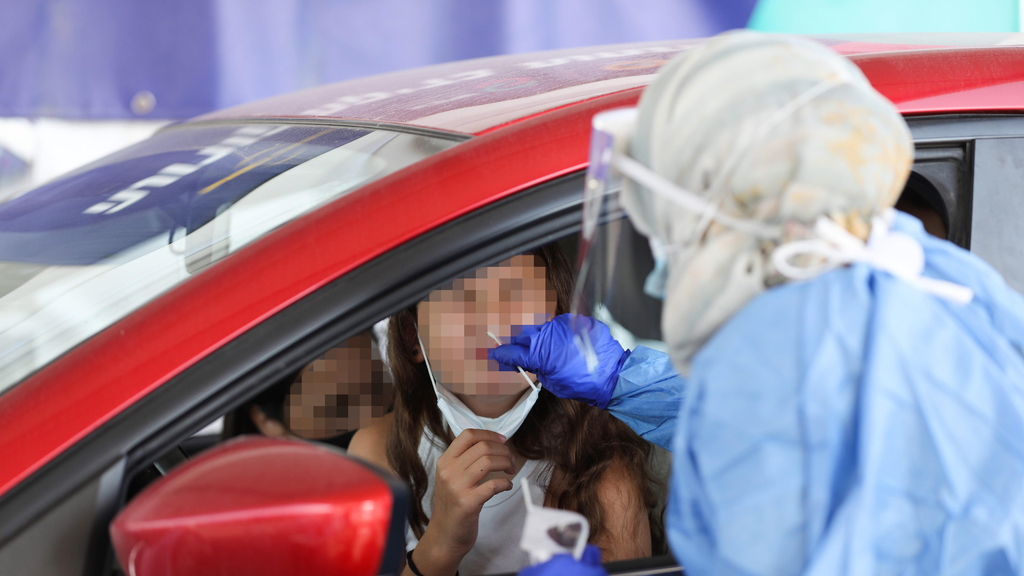Life had almost returned to normal in Israel following its world-leading vaccination drive. Restaurants returned to unregulated activity, and Israelis flocked to Ben-Gurion Airport for their summer vacation abroad. However, a fourth wave of the pandemic, beginning three months ago, has caused a skyrocketing number of cases.
From a few daily infections at the beginning of June, last Thursday saw 11,316 new COVID-19 cases diagnosed, a record number for the country of 9.4 million people.
The outbreak has forced the government to enact and reenact a set of measures to try to regain control of the virus’ spread. The Green Pass – a certificate given to the vaccinated, recovered and recently tested – was reinstated as a condition for entering closed public spaces such as restaurants and gyms.
Importantly, the eligibility for the pass was redefined. While previously, all vaccinated and recovered Israelis could receive a pass valid until December 31, starting on October 1, if more than six months have passed since the recovery or second vaccination, a third dose is required. In tandem with this, the government declared that all Israelis aged 12 and older can schedule their booster shot.
At present, over 2.6 million Israelis have been vaccinated for the third time, more than 2 million in the last month alone.
5 View gallery
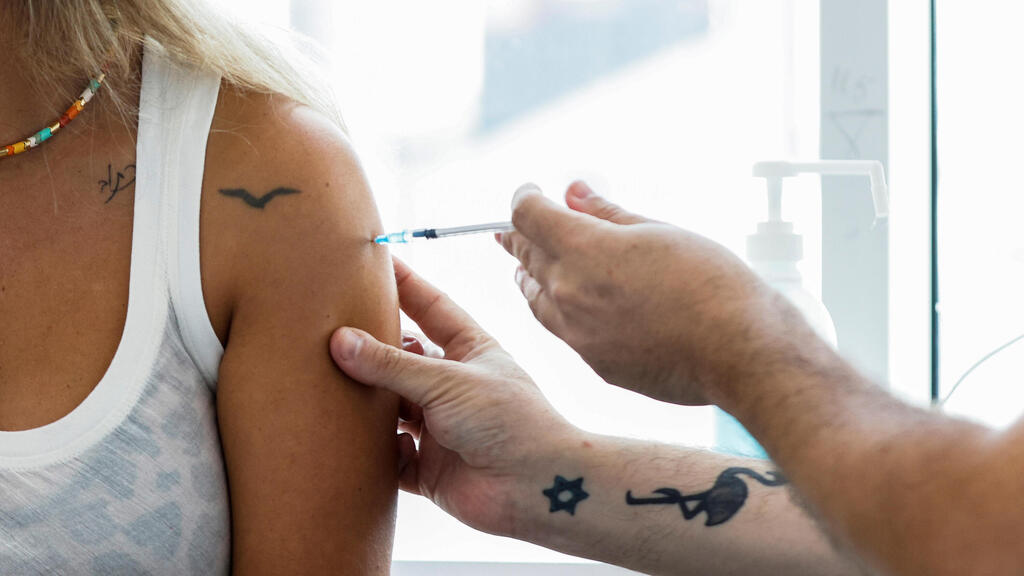

A woman receives the third dose of the coronavirus vaccine in Tel Aviv late last month
(Photo: Reuters)
Israel may be reaping the fruits of the government’s efforts, with the percentage of positive tests on the decline in the past few days. While 8.4% of tests came back positive last Thursday at the peak of a steady increase, 5.5% of tested Israelis had the virus on Sunday.
Prof. Eran Segal, creator of the Weizmann Institute of Science’s COVID-19 prediction model and an adviser to the government, expressed careful optimism in a tweet on Sunday.
“Signs that Israel may be over the delta peak,” he said, referring to the highly infectious variant of the virus. “A few days of drop in new severely ill patients, and the first day of drop in weekly average of cases.”
Segal noted, however, that “[we] need to wait as school just opened and holidays are ahead.”
Indeed, September may prove a challenge to Israel’s fight against the coronavirus. On September 1, 2 million children returned to school to sit together in closed classrooms, while a smaller number will continue to study remotely.
5 View gallery
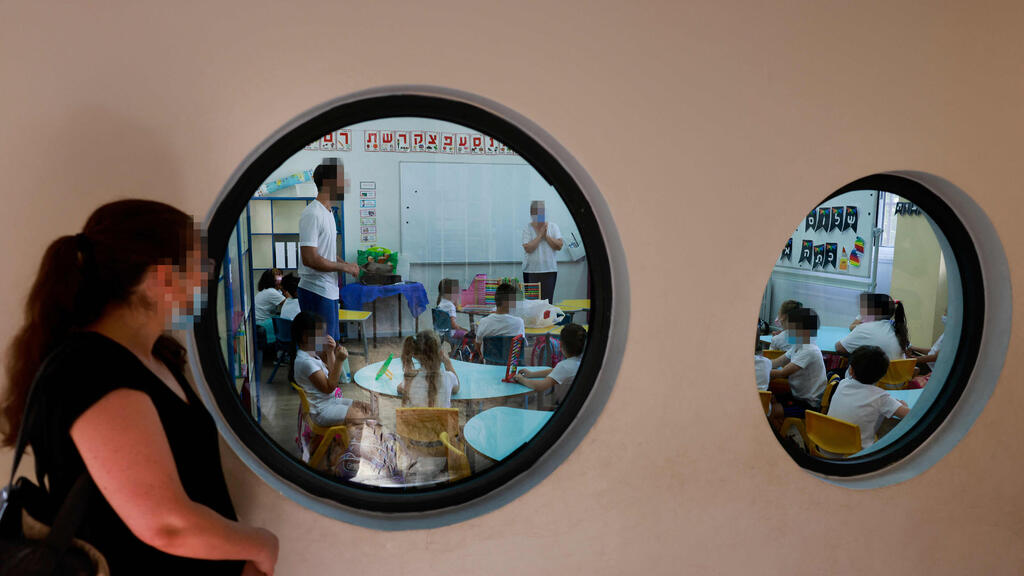

A woman looks on as first graders sit in class on the first day of school on September 1 in Jerusalem
(Photo: AFP )
The Education Ministry’s plan for the reopening includes widespread serological tests of students to find previously unidentified recovered children, who can be exempted from quarantine requirements. Some 400,000 were tested, and 10% were found to carry antibodies, making them eligible for Green Passes.
Additionally, a last-minute effort to test all children aged three to 16 years old using home kits distributed to parents located 8,000 cases. Around 180,000 would have been forced into quarantine were these cases not discovered, the Education Ministry estimates.
Another round of home testing is being advanced by the ministry, to counter the spread of the virus over Rosh Hashanah, which will be celebrated for two days beginning on the evening of September 6.
In general, the ministry’s plan is to use testing and dynamic regulations based on the number of students eligible for a Green Pass to ensure that the largest number of children can continue to study normally, in classrooms.
5 View gallery
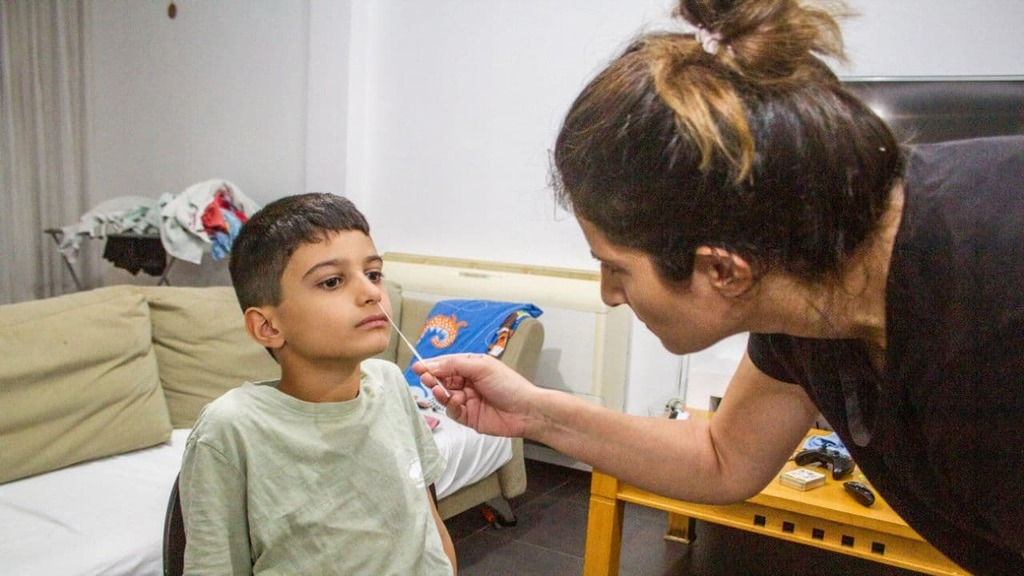

A mother administers the rapid test for COVID-19 for her son before his first day back at school on September 1
(Photo: Ido Erez)
It should be noted, however, that students are not required to have a Green Pass to enter schools and testing at present depends on the parents’ approval. This is not the case for teachers, staff and parents, who must present a pass to enter schools.
The Association of Secondary School Teachers has turned to the Supreme Court in an effort to overturn the exemption of older students, aged 12 and above, from the requirement of a Green Pass. The organization says this exemption turns schools into “dangerous workplaces” and demands that unvaccinated and untested students be barred from schools.
However, Merom Shiff, the chairman of the National Parents Union, says he regrets the appeal to the court. "Israel has a compulsory education law, and children belong in the education system. We’ve seen the negative effects of the coronavirus, when children stayed home with Zoom, all the mental [health] consequences.”
The solution is additional testing and vaccination to decrease the chances of infection, but children should certainly not suffer and be barred from schools because of their parents’ decision not to vaccinate them, Shiff said.
In addition to the education system’s reopening, the High Holydays that began this week and end in three weeks, may also contribute to the pandemic’s spread. The holidays are celebrated with large family meals, bringing relatives into close contact. Experts have expressed their worry that these gatherings may prove especially dangerous, as young family members – some spending their days in closed classrooms – may expose their elderly relatives, in much greater risk, to the virus.
5 View gallery
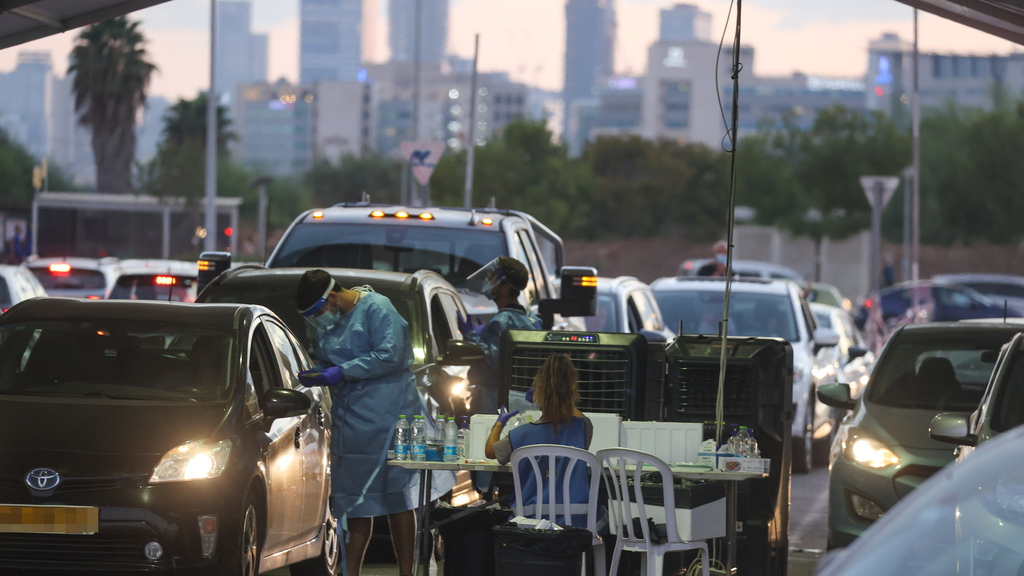

Cars line up as Israelis wait to be tested for COVID ahead of holiday celebrations in Petach Tikva on Sunday
(Photo: Yariv Katz)
Long prayers in closed synagogues could also prove dangerous to the congregants. The Health Ministry has urged Israelis to hold prayers in the open air to minimize the risk of infection.
A few days after schools reopened, and with the first family meals on Monday night, it is as of yet unclear who will win – Israel’s third vaccine dose and stricter Green Pass rules, or the fourth wave of COVID-19.
In a tweet last week, Segal said that it is “of course, difficult to estimate” the effects of the events in the coming month. If these events push the average number of people a COVID carrier infects (the R) by 0.2, “curbing [the spread] will be delayed to the end of September, and [the number of] patients in serious condition in hospitals may reach 1,300-1,400.”
As of Monday, 679 COVID-19 patients were hospitalized in serious condition in Israel, and the R reproduction rate was slightly over 1.
Article written by Daniel Sonnenfeld. Reprinted with permission from The Media Line


